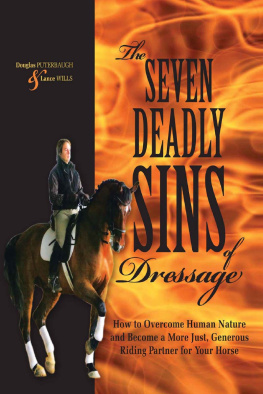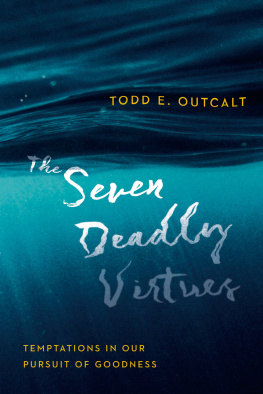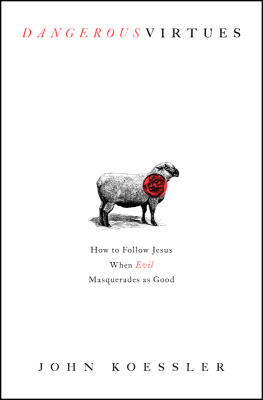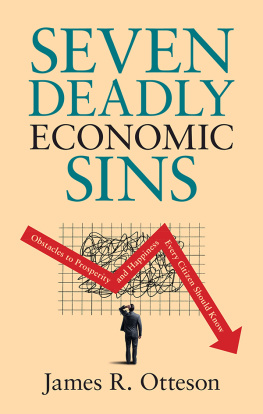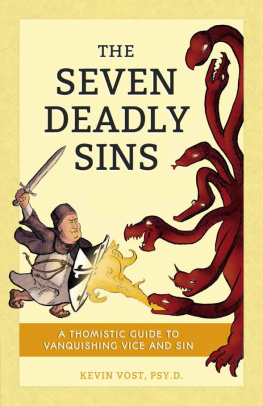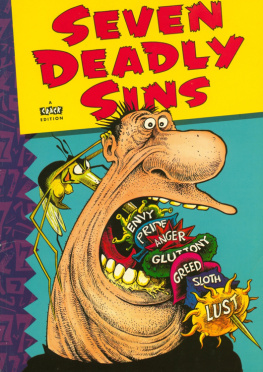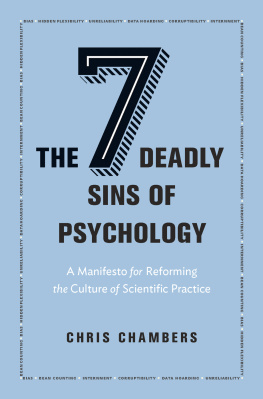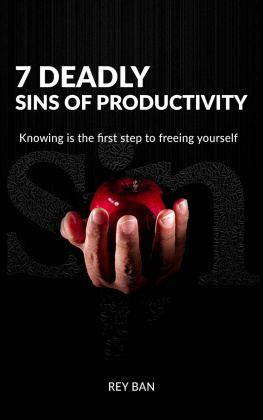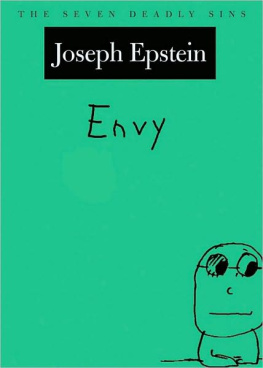
LOST SOULS
What is the state of contemporary American morality? From their original conception in Christian scripture to their assimilation into Western culture, the Seven Deadly Sins lust, greed, envy, pride, and all the rest have guided human morality, steering human behavior and psychology away from evil and toward a full embrace of the good. But their hold on modern life is increasingly tenuous. Indeed, one may observe that these days, deadly sin is far more common and more commonly practiced than its virtuous counterparts humility, charity, kindness, industriousness, and chastity. Without greed, there is no economy; without anger, no politics; and without pride and envy, surely less motivation and competition would exist.
James D. Wright carefully examines the complexities and ambiguities in modern society in the context of the seven deadly sins and their corresponding virtues. Are we all lost souls, condemned by our immoral deeds, or are the trappings of older sin deteriorating? Is it time, finally, to reconsider the classifications of evil and good?
Wright uses each chapter to consider how the social sciences have operationalized each sin, how they have been studied, and what lessons have been learned over time. He reviews recent trends and contemplates the societal costs and benefits of the behaviors in question. Lost Souls emerges, then, as a meditation on contemporary sin, concluding that the line between guilt and innocence, right and wrong, is often very thin.
James D. Wright is an author, educator, and the Provosts Distinguished Research Professor Emeritus in the Department of Sociology at the University of Central Florida. He has published 28 books and research monographs, and more than 300 journal articles, book chapters, essays, reviews, and polemics.
James D. Wrights Lost Souls is a remarkable reflection on the shifting moral landscape of contemporary America; wherein, the seven deadly sins of lust, gluttony, greed, sloth, anger, envy and pride have seemingly been transformed into virtuous ideals. It is a must read for those of us grappling with the moral foundations of the Trump era.
Darren E. Sherkat, Southern Illinois University
James D. Wright gives a clear view and analysis of contemporary culture and morality with insights in every chapter. His writing is so engaging and often funny that you dont realize how much you are learning about sociological theory and social history until after you have finished a chapter. Every chapter illuminates Biblical injunctions and modern norms, social science research and its interpretation, and contemporary society.
Murray Webster, Professor of Sociology,
University of Charlotte
This erudite and fascinating book summarizes a broad swatch of sociological research as it shows convincingly that what some might regard as sinful may also be socially necessary.
Arne L. Kalleberg, Kenan Distinguished Professor of Sociology,
University of North Carolina at Chapel Hill
First published 2018
by Routledge
711 Third Avenue, New York, NY 10017
and by Routledge
2 Park Square, Milton Park, Abingdon, Oxon OX14 4RN
Routledge is an imprint of the Taylor & Francis Group, an informa business
2018 Taylor & Francis
The right of James D. Wright to be identified as the author of this work has been asserted by him in accordance with sections 77 and 78 of the Copyright, Designs and Patents Act 1988.
All rights reserved. No part of this book may be reprinted or reproduced or utilised in any form or by any electronic, mechanical, or other means, now known or hereafter invented, including photocopying and recording, or in any information storage or retrieval system, without permission in writing from the publishers.
Trademark notice: Product or corporate names may be trademarks or registered trademarks, and are used only for identification and explanation without intent to infringe.
Library of Congress Cataloging-in-Publication Data
A catalog record for this book has been requested
ISBN: 978-1-138-48179-4 (hbk)
ISBN: 978-1-138-48180-0 (pbk)
ISBN: 978-1-351-01161-7 (ebk)
Typeset in Bembo
by codeMantra
Be patient, my soul: thou hath suffered worse than this.
Thomas Holcroft (17451809), British author
This book is dedicated to my dogs Barnie and Belle and my cat Indiana, who were constant companions throughout the writing process, all of them sound asleep in the various nooks and crannies of my writing studio. To Belle, your admiration of me is wholly undeserved. To Barnie, not every falling leaf or passing vehicle needs to be barked at. To Indy, please stop walking across my keyboard when I am trying to write.
It will come as a surprise to many readers that the seven deadly sins are not specifically Biblical in origin, although they have served for centuries as principles of Christian ethical education. The Big Seven, as we currently know them, are lust, gluttony, greed, sloth, anger, envy, and pride, and these specific seven offenses were first listed as such by the monk Evagrius Ponticus, who identified the seven as base urges that pious men were expected to overcome or sublimate. Evagriuss student John Cassian brought the Big Seven into Western (European) culture with his publication The Institutes, which dates to around 420 AD. So, while their origins are clearly religious, they are not specifically Biblical.
The Bible is not bereft of lists of Dos and Donts, lists numbering anywhere from six to 17. Leading the list, of course, are the Ten Commandments that Moses brought down from the mountain. Elsewhere in the Old Testament, we have the six things that the Lord hateth from the Book of Proverbs: A proud look, a lying tongue, and hands that shed innocent blood, a heart that deviseth wicked imaginations, feet that be swift in running to mischief, a false witness that speaketh lies. A seventh he that soweth discord among brethren is listed as an abomination. (Quotes from the King James Version, Proverbs 6: 1619)
Still another list, this appearing in Pauls Epistle to the Galatians, and thus from the New Testament, numbers 17 vices, including most of the traditional Big Seven: adultery, fornication, uncleanliness, lasciviousness, idolatry, sorcery, hatred, variance, emulations, wrath, strife, sedition, heresies, envy, murder, drunkenness, revelry, and such like. (Galatians 5: 1921). The quoted material is from the King James Version (hereafter, KJV). The Common English Bible lists fighting instead of variance and obsession instead of emulations. In yet another translation, variance is rendered as dissension.
A final revision into the currently accepted Big Seven was undertaken by Pope Gregory I in about 590 AD. Gregorys version was adopted by Dante in his Divine Comedy (1320 AD) and also by Chaucer in The Canterbury Tales (begun in 1389 AD) Today, they are part and parcel of the Catholic catechism used to teach young people how to shun evil, embrace good, and lead a pious life.
It may also surprise many readers that there is a parallel listing of seven holy virtues (sometimes referred to as contrary virtues): humility, charity, kindness, patience, chastity, temperance, and diligence.
A sociologist analyzing Western societies today would, without question, conclude that deadly sin is far more common and more commonly practiced than holy virtue. One might even conclude that sinfulness lust, gluttony, greed, envy, pride, and all the rest have become hallmarks of postindustrial, postmodern society. And that, specifically, is the theme of this book. Without greed, there is no economy; without anger, no politics; without lust, well, not much of anything these days. Christian teachings to shun the Seven Deadlies fly squarely in the face of pretty much everything contemporary American society (indeed, Western society at large) urges people to do. Either the Christians have gotten things all wrong or eternity is seriously overpopulated with lost souls.


